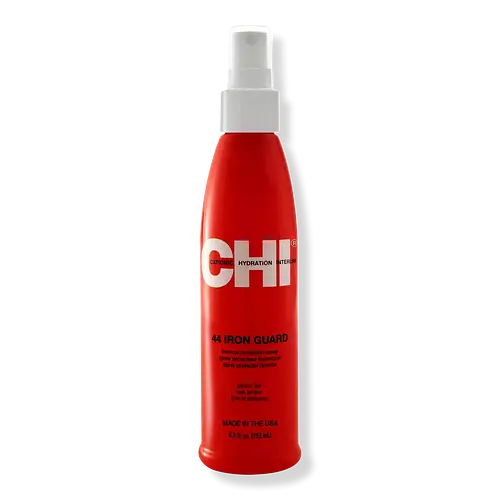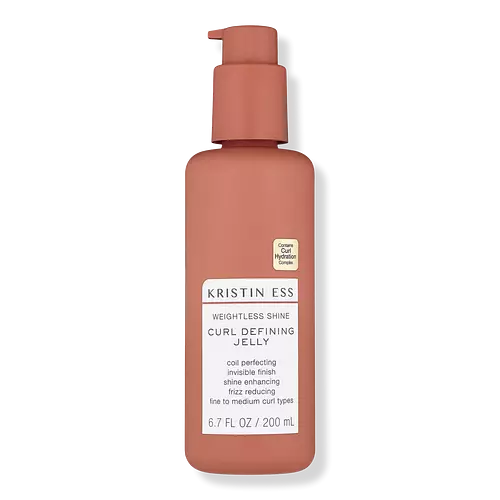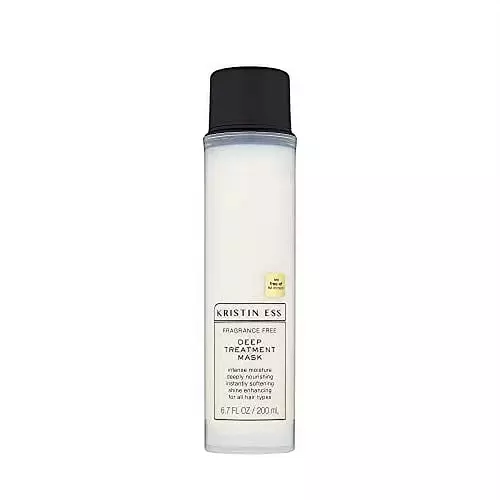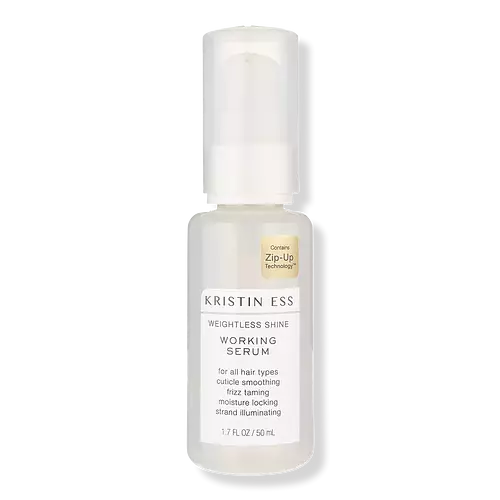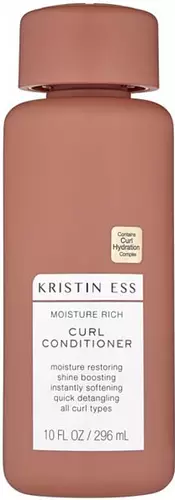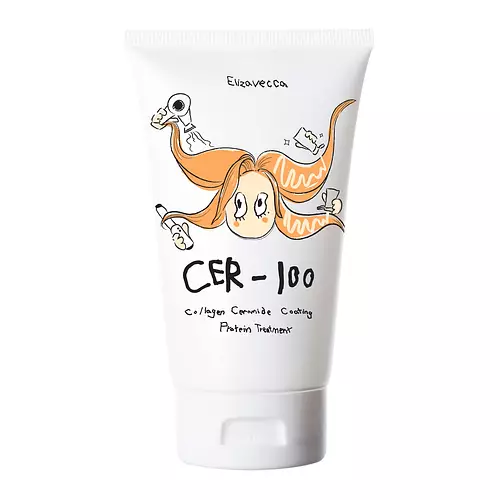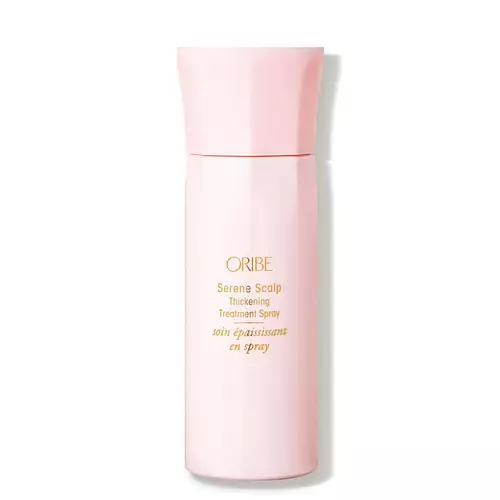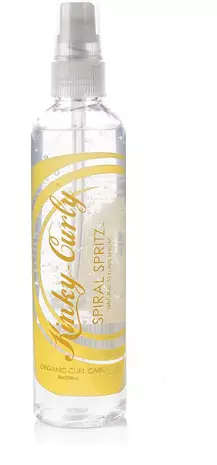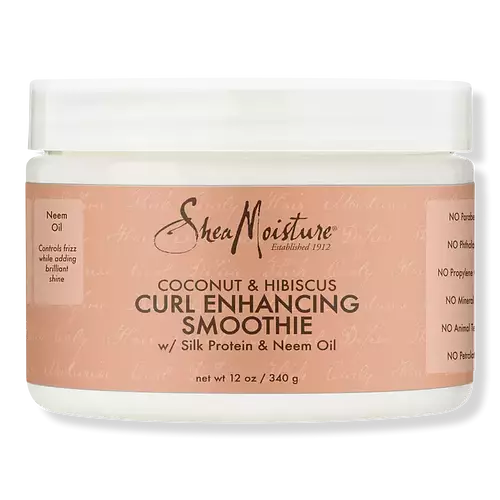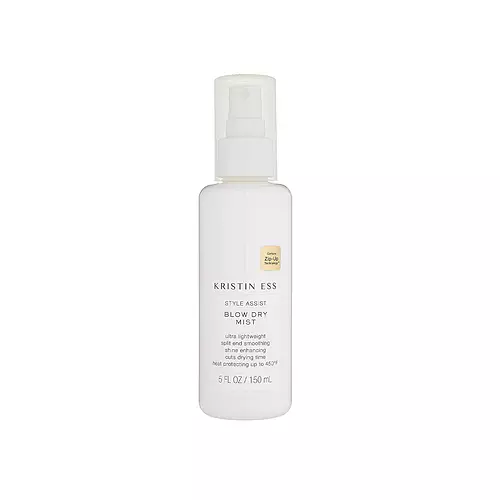
Kristin Ess Hair Style Assist Blow Dry Mist Ingredients Explained
Overview
What it is
Styling creams & spray with 23 ingredients
Cool Features
It is cruelty-free and reef safe
Suited For
It has ingredients that are good for dry skin and brightening skin
Free From
It doesn't contain any common allergens, parabens or sulfates
Fun facts
Kristin Ess Hair is from United States. This product is used in 1 routines created by our community.
We independently verify ingredients and our claims are backed by peer-reviewed research. Does this product need an update? Let us know.
Styling creams & spray with 23 ingredients
Quick info
You should know
Benefits
This product contains 1 ingredient that may have this attribute:
Concerns
This product contains 1 ingredient that may have this attribute:
This product contains 2 ingredients that may have this attribute:
This product contains 1 ingredient that may have this attribute:
This product contains 2 ingredients that may have this attribute:
This product contains 2 ingredients that may have this attribute:
Ingredients 23
Cyclopentasiloxane is a silicone used to improve texture and trap moisture. An easier name for this is D5.
Alcohol Denat. is an alcohol with a denaturant property. It is created by mixing ethanol and other additives. It has a low molecular weight and will evaporate quickly. This helps other ingredients become better absorbed and dry once applied.
Parfum is a catch-all term for an ingredient or more that is used to give aroma to products. Parfum, or fragrance, can be a blend of hundreds of chemicals or plant oils. This means every product with "fragrance" or "Parfum" in the ingredients list is a different mixture.
Polyglyceryl-4 Isostearate isn't fungal acne safe.
This ingredient is a high molecular weight silicone. It has emulsifying and skin conditioning properties.
Water. It's the most common cosmetic ingredient of all. You'll usually see it at the top of ingredient lists, meaning that it makes up the largest part of the product.
We don't have a description for Cetearamidoethyldiethonium Succinoyl Hydrolyzed Pea Protein.
Hypnea Musciformis Extract comes from the red algae called Hypnea musciformis. Hypnea Musciformis is commonly found in the Atlantic, Pacific, and Indian Oceans.
Glycerin is already naturally found in your skin. It helps moisturize and protect your skin.
Salvia Hispanica Seed Oil is an oil and isn't fungal acne safe.
Sorbitol is a sugar alcohol. It is a hydrating and moisturizing agent created from the reduction process of glucose.
Caprylic/Capric Triglyceride is an emollient, solvent, and texture enhancer. It is considered a skin-softener by helping the skin prevent moisture loss.
Xanthan gum is used as a stabilizer and thickener within cosmetic products. It helps give products a sticky, thick feeling - preventing them from being too runny.
Hydrolyzed Keratin is derived from keratin. Keratin is a large protein that is naturally found in our hair and skin.
Coco-Glucoside is a surfactant, or a cleansing ingredient. It is made from glucose and coconut oil.
Carrageenan comes from red seaweed or algae. It is made up of polysaccharides and a highly flexible compound. Red algae cell walls are rich in carrageenan.
Algin is brown algae. Algae is an informal term for a group of aquatic organisms that can photosynthesize. It is estimated there are at least 30,000 types of Algae.
Cyclotetrasiloxane, Cyclopentasiloxane, Alcohol Denat., Parfum, Polyglyceryl-4 Isostearate, Hexyl Laurate, Cetyl Peg/Ppg-10/1 Dimethicone, Water, Cetearamidoethyldiethonium Succinoyl Hydrolyzed Pea Protein, Hypnea Musciformis Extract, Glycerin, Sargassum Filipendula Extract, Gelidiella Acerosa Extract, Salvia Hispanica Seed Oil, Sorbitol, Caprylic/Capric Triglyceride, Xanthan Gum, Hydrolyzed Keratin, Coco-Glucoside, Carrageenan, Algin, Litchi Chinensis Pericarp Extract, Chitosan
Ingredient Ratings
Based on the number of likes and dislikes each ingredient has received.
Ingredients Explained
Cyclotetrasiloxane is a type of silicone.
Cyclopentasiloxane is a silicone used to improve texture and trap moisture. An easier name for this is D5.
D5 is considered lightweight and volatile. Volatile means it evaporates quickly after application. Once evaporated, D5 leaves a thin barrier that helps keep skin hydrated.
D5 is an emollient. Emollients help soften the skin and prevent water loss. Silicones create a silky texture in products. D5 helps other ingredients become more spreadable.
Studies show D5 is safe to use in skincare products. We recommend speaking with a skincare professional if you have concerns.
Learn more about CyclopentasiloxaneAlcohol Denat. is an alcohol with a denaturant property. It is created by mixing ethanol and other additives. It has a low molecular weight and will evaporate quickly. This helps other ingredients become better absorbed and dry once applied.
Alcohol Denat. is volatile and may cause irritation. It helps draw out natural oils in skin and dry out your skin.
One study from 2005 found adding emollients to propanol-based sanitizer decreased irritation.
Alcohol is antibacterial by nature. This can help preserve products and increase their shelf life.
Other types of astringent alcohols include:
Learn more about Alcohol Denat.Parfum is a catch-all term for an ingredient or more that is used to give aroma to products. Parfum, or fragrance, can be a blend of hundreds of chemicals or plant oils. This means every product with "fragrance" or "Parfum" in the ingredients list is a different mixture.
In the US, the alternative name for parfum is 'fragrance'. The term 'fragrance' is not regulated in many countries. In many cases, it is up to the brand to define this term.
For instance, many brands choose to label themselves as "fragrance-free" because they are not using synthetic fragrances. However, their products may still contain ingredients such as essential oils that are considered a fragrance. One example is Calendula flower extract. Essential oil ingredients still impart a scent or 'fragrance'.
Depending on the blend, it can cause allergies and sensitivities on the skin. Some ingredients that are known EU allergens include linalool and citronellol.
Products use parfum often to give products a scent or cover up smells of different ingredients.
The bottom line is: not all fragrances/parfum/ingredients are created equally. If you are worried about fragrances, we recommend taking a closer look at an ingredient. And of course, we always recommend speaking with a professional.
Learn more about ParfumPolyglyceryl-4 Isostearate isn't fungal acne safe.
Hexyl Laurate isn't fungal acne safe.
This ingredient is a high molecular weight silicone. It has emulsifying and skin conditioning properties.
Water. It's the most common cosmetic ingredient of all. You'll usually see it at the top of ingredient lists, meaning that it makes up the largest part of the product.
So why is it so popular? Water most often acts as a solvent - this means that it helps dissolve other ingredients into the formulation.
You'll also recognize water as that liquid we all need to stay alive. Talk about multi-purpose! If you see this, drink a glass of water. Stay hydrated!
Learn more about WaterWe don't have a description for Cetearamidoethyldiethonium Succinoyl Hydrolyzed Pea Protein.
Hypnea Musciformis Extract comes from the red algae called Hypnea musciformis. Hypnea Musciformis is commonly found in the Atlantic, Pacific, and Indian Oceans.
The cell walls of Hypnea Musciformis is rich in carrageenan.
Hypnea Musciformis Extract contains vitamins A, C, and E. It also has calcium, magnesium, sodium, potassium, and iron.
Learn more about Hypnea Musciformis ExtractGlycerin is already naturally found in your skin. It helps moisturize and protect your skin.
A study from 2016 found glycerin to be more effective as a humectant than AHAs and hyaluronic acid.
As a humectant, it helps the skin stay hydrated by pulling moisture to your skin. The low molecular weight of glycerin allows it to pull moisture into the deeper layers of your skin.
Hydrated skin improves your skin barrier; Your skin barrier helps protect against irritants and bacteria.
Glycerin has also been found to have antimicrobial and antiviral properties. Due to these properties, glycerin is often used in wound and burn treatments.
In cosmetics, glycerin is usually derived from plants such as soybean or palm. However, it can also be sourced from animals, such as tallow or animal fat.
This ingredient is organic, colorless, odorless, and non-toxic.
Glycerin is the name for this ingredient in American English. British English uses Glycerol/Glycerine.
Learn more about GlycerinWe don't have a description for Sargassum Filipendula Extract.
We don't have a description for Gelidiella Acerosa Extract.
Salvia Hispanica Seed Oil is an oil and isn't fungal acne safe.
Sorbitol is a sugar alcohol. It is a hydrating and moisturizing agent created from the reduction process of glucose.
Most sorbitol is usually made from potato starch. It is also found in fruits such as apples and pears.
As a humectant, Sorbitol helps draw water to the skin. This helps keep the skin hydrated. Sorbitol also helps create a thicker texture in products. You might find sorbitol in your toothpaste and other gels.
It is a non-irritating ingredient that is great for those with dry skin.
Sorbitol is a prebiotic. It helps promote the growth of healthy bacteria on your skin. The bacteria on your skin form a microbiome. This microbiome helps protect your skin from infection and harmful bacteria.
Learn more about SorbitolCaprylic/Capric Triglyceride is an emollient, solvent, and texture enhancer. It is considered a skin-softener by helping the skin prevent moisture loss.
Within a product, Caprylic Triglyceride can thicken the product and make spreadability easier by dissolving clumping compounds. An added benefit of Caprylic Triglyceride is its antioxidant properties.
Caprylic Triglyceride is made by combining glycerin with coconut oil, forming a clear liquid. Caprylic Triglyceride has not been found to be toxic for human use in concentrations under 50%.
While there is an assumption Caprylic Triglyceride can clog pores due to it being derived from coconut oil, there is no research supporting this.
Learn more about Caprylic/Capric TriglycerideXanthan gum is used as a stabilizer and thickener within cosmetic products. It helps give products a sticky, thick feeling - preventing them from being too runny.
On the technical side of things, xanthan gum is a polysaccharide - a combination consisting of multiple sugar molecules bonded together.
Xanthan gum is a pretty common and great ingredient. It is a natural, non-toxic, non-irritating ingredient that is also commonly used in food products.
Learn more about Xanthan GumHydrolyzed Keratin is derived from keratin. Keratin is a large protein that is naturally found in our hair and skin.
Studies show keratin is able to seal broken hair cuticles, helping to prevent split ends and breakage.
As a humectant, hydrolyzed keratin helps draw moisture from the air to your hair and skin. This helps keep your skin and hair hydrated.
Learn more about Hydrolyzed KeratinCoco-Glucoside is a surfactant, or a cleansing ingredient. It is made from glucose and coconut oil.
Surfactants help gather dirt, oil, and other pollutants from your skin to be rinsed away. Coco-Glucoside is considered gentle and non-comedogenic.
This ingredient is a known skin-irritant.
Learn more about Coco-GlucosideCarrageenan comes from red seaweed or algae. It is made up of polysaccharides and a highly flexible compound. Red algae cell walls are rich in carrageenan.
In cosmetics, it helps to thicken the texture. Studies show carrageenan extracted from red algae possess antioxidant properties. Components found in carrageenan include: lipids, fatty acids, Vitamin E, proteins, and several amino acids.
Learn more about different types of algae.
Carrageenan is also commonly used in medicine and food. It is a vegan alternative to animal-based gelatin.
Learn more about CarrageenanAlgin is brown algae. Algae is an informal term for a group of aquatic organisms that can photosynthesize. It is estimated there are at least 30,000 types of Algae.
Algae contains antioxidants. Antioxidants help fight free-radicals. Free-radicals are molecules that may damage your skin cells, such as pollution.
We don't have a description for Litchi Chinensis Pericarp Extract.
We don't have a description for Chitosan.
When to use
How this product is used by our community
Directions
1. On wet hair for blow drying:
- Apply a thin layer on detangled, towel dried hair before blow drying.
- Blow dry using your favorite flat brush or round brush to create smooth, shiny, healthy...
1. On wet hair for blow drying:
- Apply a thin layer on detangled, towel dried hair before blow drying.
- Blow dry using your favorite flat brush or round brush to create smooth, shiny, healthy looking hair.
2. On dry hair for thermal styling:
- Hold the bottle 6” away from your hair and spray a thin layer on the section you want to heat style.
- Use your curling iron, flat iron or any thermal hair styling tool to create your desired texture.
Compared With
Here are some products that it's often compared with
More Kristin Ess Hair Products
See all Kristin Ess Hair productsMore Styling Creams & Sprays
See all styling creams & spraysWe're dedicated to providing you with the most up-to-date and science-backed ingredient info out there.
The data we've presented on this page has been verified by a member of the SkinSort Team.
Read more about us

